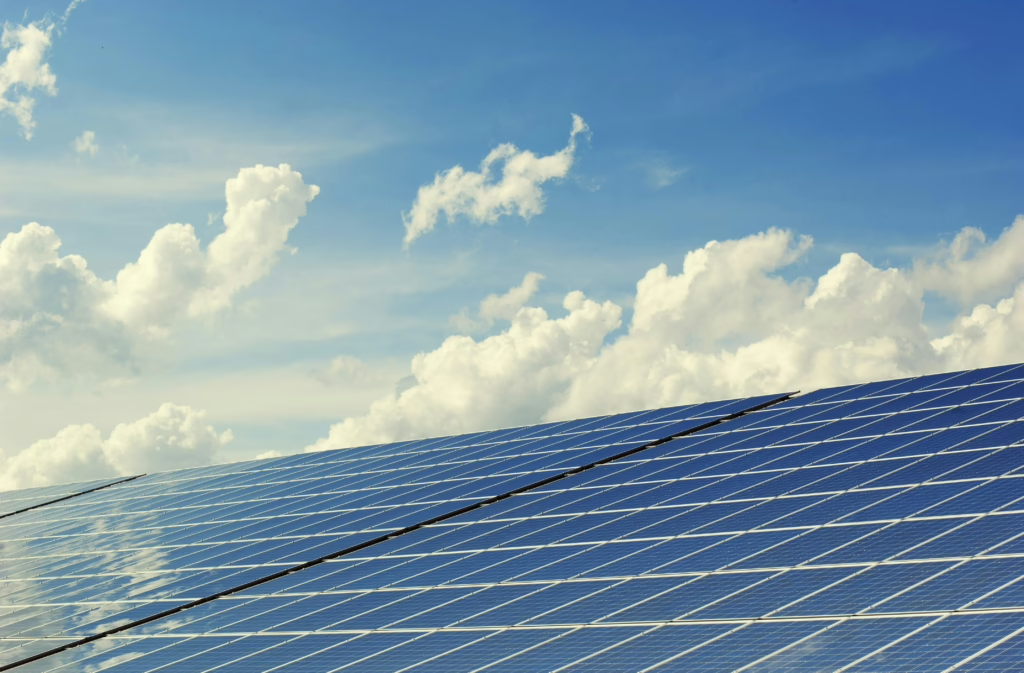As the world moves towards a more sustainable future, solar energy has emerged as a leading renewable energy source. Derived from the sun’s light and heat, solar power is abundant, clean, and completely renewable. This article explores the key benefits of solar energy for individuals, businesses, and the environment. From cost savings to government incentives and environmental impact, solar energy offers a promising path toward a greener future.

Advantages of Solar Energy
Solar energy is becoming increasingly popular as more people recognize its numerous advantages. The rapid expansion of the solar industry reflects a growing awareness of its economic and environmental benefits.
Cost Savings on Energy Bills
One of the most compelling reasons to invest in solar energy is the potential for significant cost savings. Although the initial installation costs can be high, the long-term financial benefits outweigh the upfront expense. Once installed, solar panels generate electricity for decades, drastically reducing or even eliminating electricity bills.
Government incentives further enhance the financial appeal of solar energy. Homeowners and businesses can take advantage of tax credits, rebates, and net metering programs, where excess energy can be sold back to the grid for credit. Additionally, solar energy protects consumers from fluctuating energy prices, providing financial stability over time.
Environmental Benefits
Solar energy is an environmentally friendly alternative to traditional fossil fuels. Unlike coal, oil, and natural gas, solar power does not emit greenhouse gases or air pollutants, making it a clean energy source that does not contribute to climate change.
By harnessing the sun’s power, we can reduce our reliance on non-renewable resources and decrease carbon emissions. Additionally, solar energy reduces the strain on water resources and minimizes deforestation caused by conventional energy production. The widespread adoption of solar power can play a crucial role in combating global environmental challenges.
Durability and Longevity of Solar Systems
Solar energy is a highly reliable and durable energy source. Solar panels have an average lifespan of 25 to 45 years, depending on maintenance and environmental conditions. Many manufacturers offer extended warranties, ensuring long-term performance and efficiency.
Beyond solar panels, other system components such as inverters and batteries also have long lifespans, often lasting 10–20 years with proper maintenance. The adaptability of solar systems allows for customization based on individual energy needs, making it an excellent option for both residential and commercial applications.
Government Incentives and Tax Credits
To encourage the adoption of renewable energy, many governments offer various incentives and financial benefits for solar investments. In the United States, the federal Investment Tax Credit (ITC) allows homeowners and businesses to deduct a percentage of their solar installation costs from their taxes, making solar energy more affordable.
State-level incentives, such as Solar Renewable Energy Credits (SRECs), provide additional financial benefits by allowing solar energy producers to earn credits for their generated power. Property tax exemptions also help homeowners avoid additional taxes on their solar systems. Local governments and communities often support solar adoption through initiatives like Solarize campaigns, promoting bulk purchasing to reduce costs.
The growth of the solar industry has also contributed to job creation, further boosting the economy. As demand for solar installations rises, opportunities for solar technicians and engineers continue to expand.
Easy Maintenance
One of the key advantages of solar energy is its minimal maintenance requirements. Once installed, solar panels require little upkeep, with occasional cleaning to remove dust and debris. Advanced technology has reduced the number of components required in a solar system, simplifying the overall design and increasing reliability.
Scheduled maintenance and monitoring ensure that solar systems operate efficiently. Professional technicians can perform routine inspections and repairs, ensuring optimal performance with minimal effort from the owner. The low maintenance costs associated with solar energy make it a cost-effective and hassle-free option for homeowners and businesses alike.
Conclusion
Solar energy is a sustainable, cost-effective, and environmentally friendly solution for the future. With significant cost savings, minimal maintenance, and strong government incentives, solar power is becoming an increasingly viable choice for individuals and businesses. Its durability and positive impact on the environment make it a smart investment for long-term energy independence. By adopting solar energy, we can take a crucial step toward a cleaner and more sustainable world.
